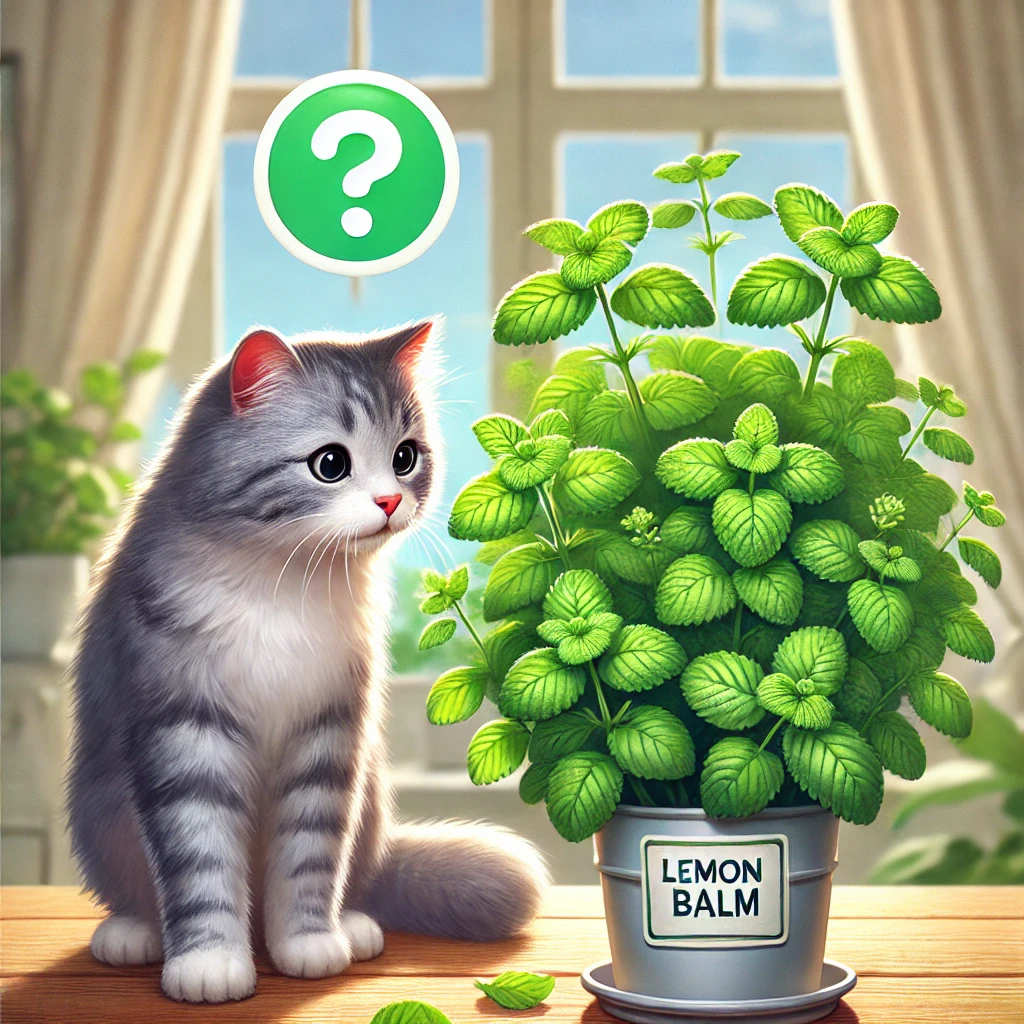Lemon Balm: Is It Toxic to Cats?
If you’re a cat owner, you know how curious cats can be—especially when it comes to plants. One herb that often raises questions is lemon balm. While it’s praised for its calming and medicinal properties for humans, its effects on our feline friends can be a bit unclear. So, is lemon balm toxic to cats? Let’s dig into everything you need to know to keep your furry companion safe and happy.
What is Lemon Balm?
Lemon balm (Melissa officinalis) is a member of the mint family. It’s a bushy, perennial herb known for its lemony scent and calming effects. Originating in Europe, lemon balm has spread worldwide, where it’s cultivated in gardens for both culinary and medicinal purposes.
Why Lemon Balm is Popular
Lemon balm isn’t just a pretty plant; it’s widely used for a variety of reasons:
- Medicinal Uses: Known to reduce stress, anxiety, and aid digestion.
- Culinary Uses: Added to teas, salads, and desserts for its mild citrus flavor.
- Aromatherapy: Used in essential oils and homemade remedies for relaxation.
Is Lemon Balm Safe for Cats?
While lemon balm is considered relatively mild compared to some other plants, its safety for cats isn’t as straightforward. Cats process certain chemicals differently than humans, making some seemingly harmless plants potentially dangerous for them.
The Toxicity of Lemon Balm to Cats
The good news? Lemon balm is not listed as one of the most toxic plants for cats by major pet health organizations. However, it can still cause problems.
Lemon balm contains essential oils and compounds like citronellal and geraniol, which may irritate a cat’s gastrointestinal system or nervous system. If consumed in large quantities, it could lead to symptoms that require veterinary attention.
Symptoms of Lemon Balm Toxicity in Cats
If your cat has ingested lemon balm, watch for the following symptoms:
Gastrointestinal Symptoms
- Vomiting
- Diarrhea
- Drooling
Neurological Symptoms
- Lethargy
- Dizziness or uncoordinated movements
- Tremors (in rare cases)
Other Signs
- Loss of appetite
- Excessive grooming or restlessness
How Much Lemon Balm Can Harm a Cat?
There’s no universally agreed-upon toxic dosage of lemon balm for cats. The risk depends on factors like:
- Your cat’s size and weight
- Sensitivity levels
- How much was ingested
Even small nibbles may cause mild irritation, so it’s best to err on the side of caution.
Why Are Cats Attracted to Certain Plants?
Cats are natural explorers. Their curiosity about plants often stems from:
- Scent: Lemon balm’s citrus aroma can attract cats.
- Taste and Texture: Some plants trigger chewing behaviors.
Unfortunately, this curiosity can sometimes lead to unwanted ingestion.
What To Do If Your Cat Ingests Lemon Balm
If you suspect your cat has nibbled on lemon balm:
- Remove the Plant: Keep it out of your cat’s reach.
- Monitor for Symptoms: Watch for any signs of toxicity.
- Call Your Vet: If your cat shows concerning symptoms, contact a veterinarian immediately.
Diagnosis of Plant Poisoning in Cats
At the vet, diagnosis may involve:
- Physical examination
- Bloodwork and urine tests
- Identifying the ingested plant
These steps help rule out other causes and confirm if lemon balm was the culprit.
Treatment for Lemon Balm Toxicity in Cats
Treatment typically involves:
- Supportive Care: Fluids to prevent dehydration, anti-nausea medications, and monitoring.
- Activated Charcoal: To absorb any remaining toxins in the stomach.
With prompt care, most cats recover fully.
Preventing Lemon Balm Toxicity in Cats
The best way to keep your cat safe is to be proactive:
- Limit Access: Avoid growing lemon balm indoors or in areas your cat frequents.
- Cat-Friendly Plants: Replace lemon balm with non-toxic alternatives.
Cat-Friendly Plants as Alternatives
If you love greenery but want to keep your cat safe, here are some great alternatives:
- Cat grass
- Catnip
- Spider plant
- Areca palm
These plants satisfy a cat’s urge to chew without posing risks.
How to Keep Your Cat Away from Toxic Plants
Here are a few tips to deter your cat:
- Use plant deterrent sprays.
- Offer safe chewing alternatives like cat grass.
- Keep plants in areas that are out of reach.
Conclusion
Lemon balm may not be the most toxic plant for cats, but it’s still best to keep it out of their reach. While small amounts may only cause mild symptoms, it’s always better to be safe than sorry. Consider safer plant options and create an environment where your cat can thrive without risk.
FAQs
1. Can lemon balm kill cats?
While unlikely to be fatal, lemon balm can cause gastrointestinal or neurological issues if ingested in large amounts.
2. How much lemon balm is too much for cats?
There’s no exact dosage, but even small amounts can cause mild irritation in sensitive cats.
3. What plants are 100% safe for cats?
Safe options include cat grass, catnip, and spider plants.
4. What other herbs should I keep away from my cat?
Avoid lavender, mint, oregano, and chives, as these can be toxic to cats.
5. How can I make my home pet-safe?
Use cat-friendly plants, keep toxic plants out of reach, and provide plenty of safe alternatives for your furry friend.

